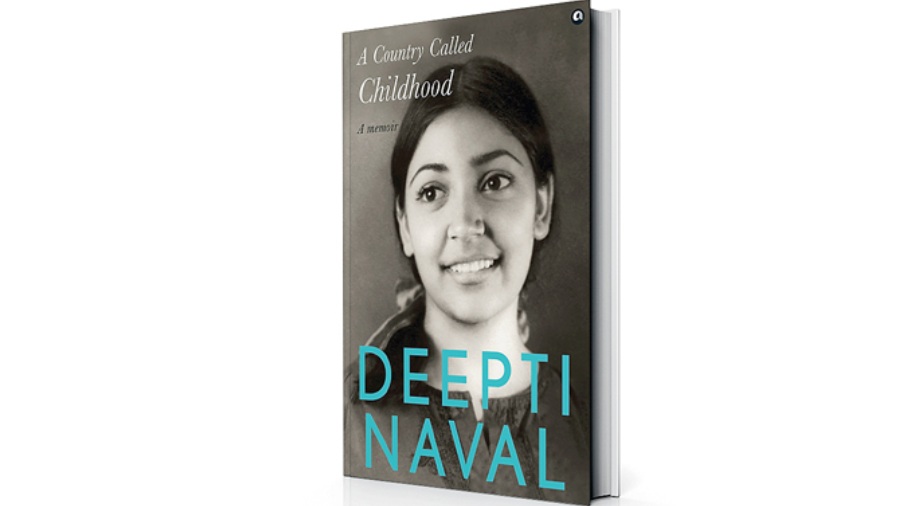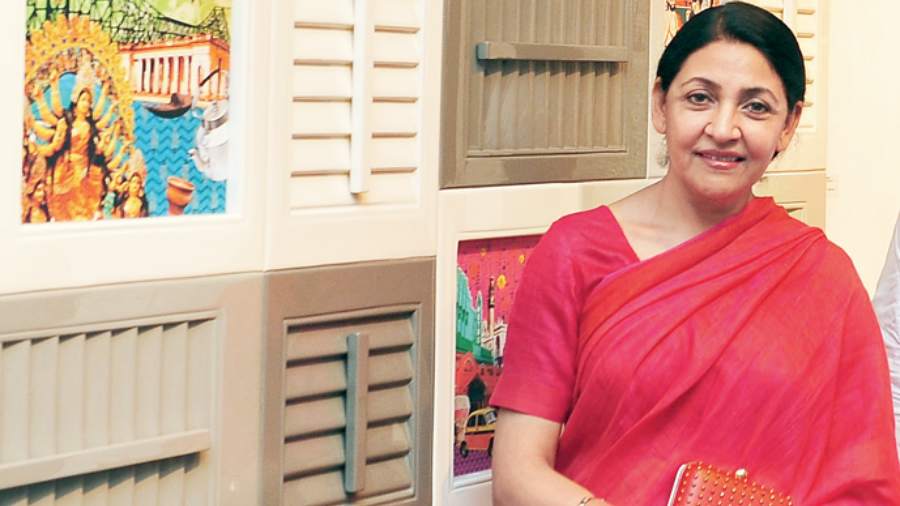Why is your memoir titled A Country Called Childhood?
It’s a metaphor, I use it like a metaphor. There’s a phrase in my book “these are the sights, smells, sounds from the country I grew up in, a country called childhood”.
Burma plays a huge part in your book. The exodus of Indians during World War II is depicted with a lot of visual detailing in the book. Does the actor and film-maker take over the writer here? How vivid were your memories while recounting those stories heard from your mother?
I have absolute clear memory of the episodes as they were narrated to me by my mother all my growing years. So, they are, in a way, my own memory as well because as she would narrate the incidents, I would visualise them, even as a child. Those visuals have remained with me ever since and it was easy to recreate them for the reader in the recall of my childhood.
How difficult was it as a writer to pick a few characters and leave out the rest? Am sure a lot of them remain to be included and the ones who resonated more with the memoir script got included.
Yes, there are a lot more that remain to be written about, there were such interesting anecdotes that could have been included, but not in this book. I could easily do another volume of my childhood memories, but that would be too much. I guess I will write them down now as fiction or vignettes from my childhood in a blog or something to support this book.
The book depicts your grandparents and their displacement journey vividly. Was it included and written about in great detail because it had more reader attention and thrilling tales to recount?
I was groomed by stories of my family. Stories of displacement have always played a major role in the shaping of this person called Deepti Naval. There has always been a lurking sense of wanting to ‘go some place else’ for me in my life as far back as I can remember. It’s like the most natural thing for me to feel that I won’t be staying here forever, that there’ll be another place to go to, I’d need to move... all this comes from the stories of exodus that I heard as a child, that no situation is permanent.
Most reviews are of the opinion that the memoir makes ‘love to Amritsar’. Is Amritsar the pivot of your memoir?
Not really. I think the city is bound to become the centre and focus as it’s the place where I grew up and what else can I write about if I am putting down memories of my childhood? It is bound to be Amritsar. Besides, it goes without saying that it is a hell of an interesting place to write about. But no, my focus is not the place itself, but the memories. Memories of my family, my parents, the people that were around me as I grew up in Amritsar.
In the book, you cursorily mention the chasm between your parents or their divorce, which took place much later in life. The book describes in detail their great loving-parenting partnership. Why were details of their growing apart left out? Was it on purpose to insulate yourself from the pain associated with such parental separation, be it at any age?
It is the life of my parents I am talking about. As a child I did not know the reasons, so I have been honest to my memories as a child. Later things changed gradually and eventually they separated. But I will not go into that. It is their personal life and, surely, I am protective about that.
Your didi, or elder sister, finds more mention than your kid brother in your memoir. Is it because of the age gap between the two of you?
It is included in the book for sure. The phase of my brother’s life as a child is definitely very important in my book and has a special place in it, but as he was only nine years old when we left Amritsar and migrated to the US, so his presence remains only that of a boy up to the age of nine.

Today, people are still displaced from their homes due to wars across the world, yet they lovingly live to make more memories. What is the singular message that screams out to your readers from the memoir?
It is the contribution of my parents in my life as a child, whatever I remember of them, that forms the basis of my book. Childhood is the most endearing part of one’s life if you are as lucky as I was. It is what makes you into who you are later in life. So, no matter where you go and what you do with life, I feel you cannot disown or wipe out what your upbringing has been. You will always carry your upbringing with you in whichever sphere of life. Your reactions, actions, decisions, will all be according to what you have been as a child and what your parents have imparted to you in your younger days. You will always carry your childhood with you for the rest of your life.
The exodus of Indians from Burma, wars fought post India’s Independence, the Partition of India, all star in the book. There is a lot of history mentioned as part of your book. Which is your favourite part?
All of that chapter, the ‘Pak War of 65’, has been my favourite chapter in the book. I recall all the little details with such joy! It was one of the first chapters I wrote down for the book together with Elbow Crusade and Little Woman and the Gramophone. These are the earliest chapters I penned down and they remain my favourites.
Why did Deepti, your younger self in the book, despite her deep Bollywood influences and a penchant for imitating characters from films, choose not to become a song-and-dance commercial Bollywood heroine despite being formally trained in dance?
Well, because in between came America and then exposure to phenomenal actors like Robert De Niro, Meryl Streep, Al Pacino, etc., and films like Taxi Driver, Deer Hunter, etc. So my ideas of good cinema and good acting also sort of changed. I could not, after all that exposure, have gone back and done the regular song-and-dance stuff on camera.
Romance has been particularly left out from the life of a growing up girl in Amritsar, you, in the book. It has been fleetingly hinted at but never fleshed out. Why?
I’m a little shy of those things, of sharing intimacies like that, but no, I would say, I have left nothing out. My First Crush has been written in detail and, later on, so has the Blue Eyed Boy been written about towards the end of the book. So you cannot say I stayed away from romance. Romance was in the air, like I say, and that’s where it remained, in the air.
Bengal is often found in the book, as a place, repository of thinkers and artists, in a journal brought out by your father, featuring a note by Rabindranath Tagore, ghazals by Juthika Roy and more. How much of Bengal has rubbed off on you?
I simply love the Bengali culture and that comes to me from my mama, who used to call herself ‘The Beauty Queen of Bengal’. She was beautiful for sure and I admired her immensely. Her grace, her elegance, the way she spoke, her voice, charm, everything. To me, as a child, that was what was the beauty of a Bengali woman. Also my father’s fascination for Tagore has certainly rubbed off on me. I love Kolkata and find great solace in roaming about the crowded footpaths of Gariahat in the city. I also love Bengali Dhakai saris!
Why would you want readers to read your book? For historical references? Exodus sentiments? Or loving your love for Amritsar?
I would like people to read my memoir to know the real me. Not from my screen image, but the real person that I am. It is only once they read my childhood memoir will they ever know who I really am as a person.
If there were any three chapters you were asked to pick from the memoir to understand Deepti Naval, which would they be?
My mother’s Burma stories, for sure, as they formed my mental make up, then the chapter about didi and I, all the little incidents of my baby years and, of course, my favourite Nheri Aayi! Nheri Aayi, the one chapter that tells you about my spirit and the heart and soul, I am.
The author is a former journalist, a bibliophile and an avid traveller
